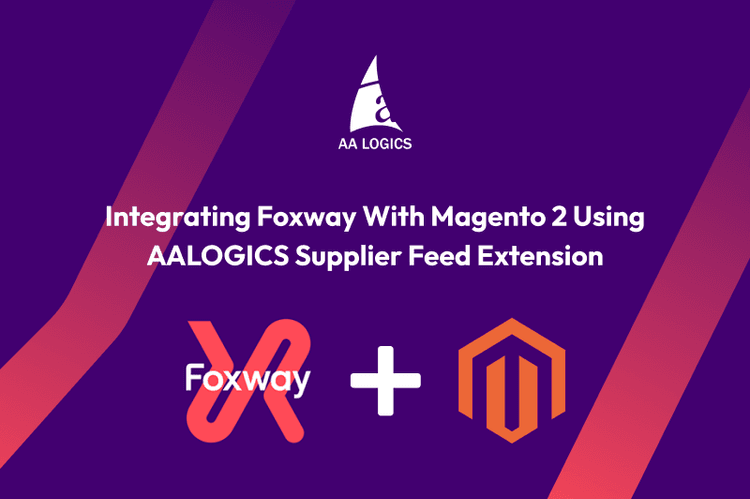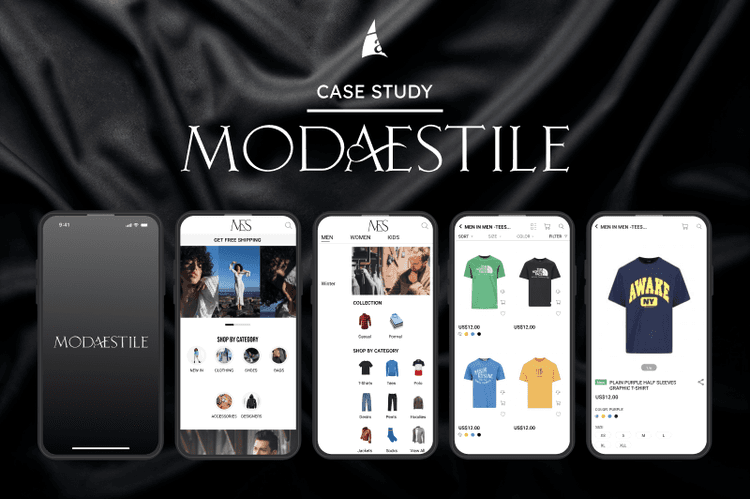AI-Powered Automation: Using AI Agents for Efficiency

Introduction
The competitive business world demands operational efficiency. Companies are constantly seeking ways to streamline processes, cut costs and boost productivity. AI-powered automation is leading the charge, with AI agents driving smarter decisions, automating tasks and optimizing workflows. To stay ahead, integrating AI agents into your operations can be a game-changer. This article explores how AI agents enhance efficiency and how AALogics expertise in AI development can help you realize their full potential.
What Are AI Agents?
AI Agents are intelligent software programs that autonomously perform tasks, analyze data and make decisions using predefined rules or machine learning models. They can learn, adapt and improve over time, making them ideal for complex, repetitive, or time-consuming tasks. Categorized into rule-based, learning-based and hybrid agents, they are versatile tools used across industries, from customer support chatbots to predictive analytics and can be tailored to meet specific business needs.

Benefits of AI Agents for Operational Efficiency
Enhanced AI Efficiency
AI automation minimizes repetitive tasks, allowing businesses to focus on strategic initiatives. By integrating AI agents into workflows, organizations can optimize resources and ensure faster decision-making with minimal human intervention.
Cost Savings
AI agents can significantly cut operational costs by automating routine tasks, reducing labor expenses by up to 40%. This allows companies to reallocate resources to growth areas like product development and market expansion. With the AI market projected to grow from $62.9 billion in 2022 to $1.4 trillion by 2029, companies that don't adopt AI risk falling behind competitors already leveraging these cost-saving benefits.
Improved Productivity
By assigning repetitive tasks to AI agents, business teams can concentrate on more strategic activities, driving both innovation and overall efficiency.
Enhanced Customer Experience
AI assistants and chatbots offer 24/7 support, quickly resolving issues and boosting customer satisfaction. With faster response times, companies can improve customer loyalty. Retailers and e-commerce sites, for instance, use AI to handle inquiries, provide recommendations and process returns—automating services that build trust and drive repeat business, giving companies a competitive advantage.
How AALogics Can Help You Leverage AI Agents
At AAlogics, we focus on creating innovative AI solutions specifically designed to meet the unique needs of your business. With our deep expertise in AI-driven automation, we help optimize your operations for maximum efficiency, while preparing you for the future. Here's how we can assist:
Custom AI Agent Development
We design and develop AI agents that align with your specific operational requirements. Whether you need a chatbot for customer service or a predictive analytics tool for supply chain management, our team can create a solution that fits seamlessly into your workflow.
Integration with Existing Systems
Our AI agents are designed to integrate effortlessly with your existing software and systems. This ensures a smooth transition and minimizes disruption to your operations.
Continuous Improvement and Support
AI agents thrive on data and feedback. We provide ongoing support and optimization to ensure that your AI agents continue to learn, adapt and deliver value over time.
Scalable Solutions
As your business grows, so do your operational needs. Our AI agents are scalable, meaning they can handle increased workloads and adapt to new challenges as your business evolves.
Transform Operations: Leverage AI Agents for Smarter Business Growth

Real-World Applications of AI Agents
- Customer Service: AI-powered chatbots can handle customer inquiries, process orders and provide personalized recommendations.
- Data Entry and Management: AI can streamline data entry processes, reducing errors and ensuring data is captured accurately and consistently.
- Project Management: AI tools can assist with planning, tracking progress and resource allocation, helping teams stay on top of deadlines and optimize performance.
- Financial Operations: AI agents enhance accuracy and compliance by automating tasks such as invoicing, expense management and financial reporting. They can also detect fraud by analyzing patterns and spotting potential risks in real time.
The Future of Operational Efficiency with AI Agents
AI adoption is rapidly increasing across industries. In 2023, the autonomous AI market was worth $4.8 billion, projected to grow to $28.5 billion by 2028, with a CAGR of 43%. This growth is fueled by businesses leveraging AI to boost operations, productivity and revenue. Sectors like retail, healthcare and finance are leading, using AI for automation, customer service and data-driven decisions. Currently, 61% of organizations have adopted AI, with more following as its transformative potential becomes evident.
Conclusion
AI-powered automation is reshaping the business landscape and AI agents are at the forefront of this transformation. By leveraging these intelligent systems, businesses can achieve unparalleled AI efficiency, optimize resources and maximize productivity. For companies like AALogics, integrating AI agents into development services is the key to staying competitive in an increasingly digital world.
Contact AALogics today to learn how our AI development services can help you leverage AI agents for operational efficiency.
Frequently Asked Questions
What are AI agents?
AI agents are intelligent software programs that autonomously perform tasks and make decisions with minimal human input. AI agents use AI models and tools to carry out end-to-end tasks. They orchestrate complex AI RPA workflows by chaining actions across systems, delegating routine tasks to software with minimal oversight. This automated task delegation boosts operational efficiency.
How do I implement AI agents in my operations?
Start by identifying repetitive, high-impact tasks to automate, then select an AI platform and integrate it with your systems. Begin with a pilot on routine operations: pick key workflows (e.g. invoicing) and a framework (e.g. LangChain). Connect the AI agent to your CRM/ERP, train it on historical data, then measure results and scale. This AI-driven workflow automates tasks end-to-end.
What ROI or cost savings can businesses expect from AI-powered automation?
Businesses often see strong ROI: studies show 20–30% lower operating costs and ~40% faster processes with AI automation. In practice, AI-driven process automation yields substantial cost reductions. A McKinsey report found companies cut expenses by 20–30% and boosted efficiency by over 40% after adoption. These gains translate into higher margins and growth.
What challenges should I consider with AI-powered automation?
Key challenges include managing complex data integration, ensuring system scalability, and handling security/governance risks. AI agents need broad data access (often across siloed sources), which complicates compliance and accuracy. They may also strain systems—slow APIs or heavy models can bottleneck workflows. Plus, giving agents autonomy raises security risks like unauthorized data access. Proper governance and oversight are essential.
Which tools or platforms support building AI-powered automation agents?
Popular choices include frameworks like LangChain or AutoGen and enterprise RPA platforms like UiPath or Automation Anywhere. Frameworks like LangChain or AutoGen orchestrate AI workflows, while RPA platforms like UiPath or Automation Anywhere include AI-powered bots for routine tasks. Together, they enable scalable automation.
How do AI agents integrate with my existing systems and workflows?
AI agents typically connect to existing systems via APIs or RPA; they can integrate with your CRM, ERP, and databases. We integrate AI agents through APIs into your ERP, CRM, or other apps. The agent then reads and writes data automatically. This seamless API integration enables AI-powered automation without disrupting operations.
Will AI agents replace humans, or is human oversight still needed?
AI agents usually complement human workers. Companies use a hybrid model: AI handles routine tasks and humans handle exceptions. Smart workflows keep humans in the loop. AI automates routine tasks, but unusual cases trigger human review. For example, an agent might draft an email, but a person approves high-value requests. This hybrid approach ensures accuracy.
How do I ensure security, governance, and compliance with AI automation?
Treat AI agents like any user: enforce strict access controls, audit logs, and compliance checks so they follow your policies. We apply enterprise-grade governance to AI agents: least-privilege access, activity monitoring, and detailed audit logs. Regular compliance checks ensure your automation meets industry standards.
How are AI agents different from traditional RPA (Robotic Process Automation)?
Traditional RPA follows fixed scripts, whereas AI agents use machine learning to adapt and improve over time. Unlike static RPA bots, AI agents continuously learn from data. They can handle unstructured inputs and adapt strategies, enabling smarter AI RPA workflows. This means your automation evolves with your business instead of needing constant reprogramming.
Let’s build a smarter, more efficient future for your business together.
Featured Articles

Magento 2 Slow Site Speed: The Hidden Theme & Extension Mistakes That Quietly Kill Revenue
Read More
Adobe Released a New Magento 2 Security Patch — What Store Owners Must Check Immediately
Read More
Automating Magento 2 Product Imports with BarcodeLookup API & Supplier Feed Extension
Read More
Magento 2 Product Import Guide: Integrating Foxway with Magento 2 Using AALOGICS Supplier Feed Extension
Read More